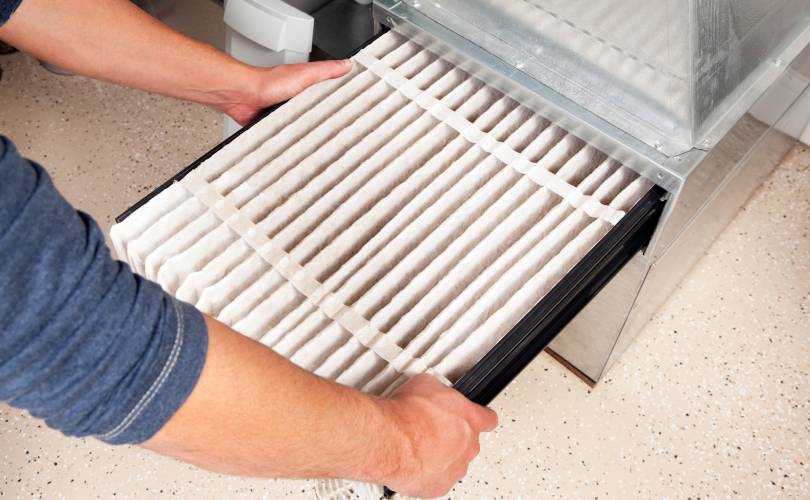As allergies continue to affect millions worldwide, the search for relief becomes paramount. Among the questions that frequently arise is whether air conditioning can serve as an ally in the battle against allergies. In this comprehensive guide, we will delve into the intricate relationship between air conditioning and allergies. We’ll explore how different air conditioning systems can impact indoor air quality, examine the science behind their effectiveness, and provide practical tips for Allergy and Asthma Sufferers.
Table of Contents
- Understanding Allergies: Unmasking the Culprits
- How Air Conditioning Can Mitigate Allergies
- Types of Air Conditioning Systems: Which One Suits Your Allergy Needs?
- Pro Tips for Allergy-Friendly Air Conditioning
- Conclusion: Breathing Easier with Air Conditioning
- Frequently Asked Questions: Your Allergy and AC Queries Answered
1) Understanding Allergies: Unmasking the Culprits
Allergies are your body’s way of reacting to substances known as allergens. These can include pollen, dust mites, pet dander, mold spores, and more. When exposed to these allergens, individuals with allergies can experience symptoms like sneezing, runny nose, itchy eyes, and congestion.
2) How Air Conditioning Can Mitigate Allergies
Air conditioning can indeed play a vital role in mitigating allergies. Here’s how:
- Filtration Power: Modern air conditioning systems are equipped with effective air filters capable of capturing airborne allergens, significantly reducing their presence indoors. These filters are adept at trapping pollen, dust, and pet dander, providing considerable relief to allergy sufferers.
- Humidity Control: Air conditioners can regulate indoor humidity levels, and maintaining optimal humidity (usually between 30-50%) can deter the growth of allergen-triggering culprits like mold and dust mites, both of which thrive in humid conditions.
- Ventilation Magic: Air conditioning systems facilitate better indoor air quality through circulation and ventilation. This process helps eliminate allergens and introduces fresh, filtered outdoor air into your living spaces.
3) Types of Air Conditioning Systems: Which One Suits Your Allergy Needs?
Different types of air conditioning systems offer varying degrees of allergy relief:
- Central Air Conditioning: Central AC systems, coupled with high-quality filters, can effectively filter out allergens. Regular maintenance, including filter replacement, is crucial for optimal performance.
- Ductless Mini-Split Systems: These systems provide zoned cooling and often come with built-in filters. They can be an excellent choice for allergy sufferers in specific areas of the home.
- Window Air Conditioners: Window AC units can cool a room, but they may not offer the same level of filtration as central systems. Choosing a model with a good filter can help.
- Portable Air Conditioners: Similar to window units, portable ACs can benefit from higher-quality filters. They are also easy to move to areas where allergen control is needed.
4) Pro Tips for Allergy-Friendly Air Conditioning
To maximize the allergy relief provided by your air conditioning system:
- Choose the Right Filter: Opt for high-efficiency particulate air (HEPA) filters, as they can capture the smallest allergen particles.
- Regular Maintenance: Keep your air conditioner well-maintained. This includes cleaning or replacing filters, checking for leaks, and scheduling professional maintenance when necessary.
- Seal Leaks and Gaps: Ensure that your home is properly sealed to prevent outdoor allergens from entering.
- Consider Air Purifiers: In addition to your AC system, using standalone air purifiers with HEPA filters in bedrooms and living areas can further improve indoor air quality.
5) Conclusion: Breathing Easier with Air Conditioning
While air conditioning cannot completely eliminate allergies, it can significantly reduce allergen exposure and alleviate symptoms. The choice of the right air conditioning system, proper maintenance, and other allergen-reduction measures can collectively create a healthier indoor environment for allergy sufferers.
6) Frequently Asked Questions: Your Allergy and AC Queries Answered
Q1: Can air conditioning completely eliminate allergies? A1: While air conditioning can significantly reduce indoor allergen levels, it may not completely eliminate allergies. Allergen exposure can still occur outdoors, and individuals with severe allergies may require additional measures.
Q2: What is a HEPA filter, and how does it help with allergies? A2: HEPA stands for High-Efficiency Particulate Air. HEPA filters are extremely efficient at capturing small airborne particles, including allergens like pollen, dust mites, and pet dander. They are highly effective in improving indoor air quality.
Q3: How often should I replace my air conditioner’s filter? A3: The frequency of filter replacement depends on factors like filter type, usage, and indoor air quality. As a general guideline, standard filters may need replacement every 1-3 months, while HEPA filters typically last longer, often 6-12 months.
Q4: Are there specific air conditioning settings that are better for allergy relief? A4: Keeping your air conditioner set to maintain a humidity level between 30-50% and using the highest-quality filter compatible with your system can be beneficial for allergy relief. Additionally, ensuring good ventilation helps freshen indoor air.
Q5: Can air conditioning worsen allergies if not properly maintained? A5: Yes, poorly maintained air conditioning systems can potentially worsen allergies. A dirty or clogged filter may circulate allergens, and a neglected system can allow mold growth, which can exacerbate allergies.
Zeeshan is a seasoned tech expert and senior writer at Teckrr.com. With over 10 years of experience in tech journalism, he brings insightful analysis and up-to-date information on the latest tech trends. Zeeshan holds a MBA degree from Business and Tech University and is known for his engaging writing style and ability to demystify complex tech topics. Stay connected with the cutting-edge of technology through his expert lens.

Leave a Reply